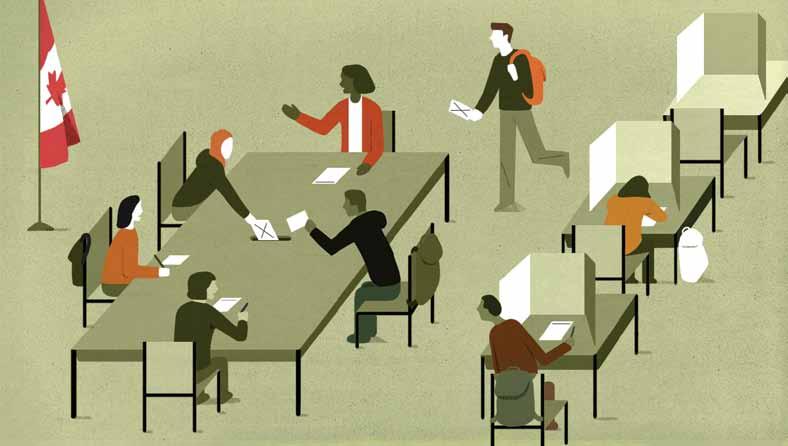
1 minute read
The Democratic Process of Voting
Engaging and encouraging student involvement
It’s federal election month here, and if there is one thing elections can teach us, it’s the power of the collective voice.
Advertisement
Elections provide an important opportunity to engage our students by demonstrating not only how governments work, but the importance of being aware, involved and engaged in the process.
Teaching students about the electoral process can provide valuable critical thinking skills, collaboration opportunities and an understanding of their own democratic value, including how their voice can affect the world around them. Whether it’s researching candidates, parties and issues, voting in student-to-student elections, or recognizing the importance of taking part when they are old enough to vote, it’s critical to get our students involved in the conversation.
Schools can take part in the election process by using various resources offered by the government and by third parties. These resources include access to teaching tools, supporting documents and a student mock voting platform.

Student Vote is a parallel election platform that coincides with official election periods for students who are under the voting age. Schools register, receive materials, engage with campaigns and launch Student Vote Day. The campaign provides students with the opportunity to experience the democratic process and practice the habits of informed and engaged citizenship.
Elections Canada provides free educational resources and tools for supporting teaching and learning about Canadian elections and democracy.
Employment Opportunities are available through Elections Canada for students 16 years of age or older, who can work during advance voting and on the day of the election at polling stations in various positions.
The Ontario Register of Future Voters allows students who are currently 16 or 17 years old to register as future voters. Young people who register will automatically be added to the voters’ list when they turn 18, ensuring they are ready to vote as soon as the next election is called.
By helping our youth find their voice, we can help inspire a generation of informed, engaged, active students both within our schools and our communities. This is not a partisan process, advocating on behalf of particular candidates or political parties. Rather, it is an opportunity to teach our students about engagement, democracy and the rights and responsibilities of being a voter. It is an important lesson that will serve them over their lifetime.






